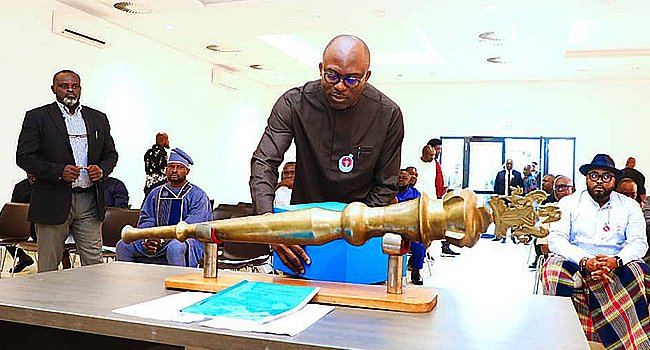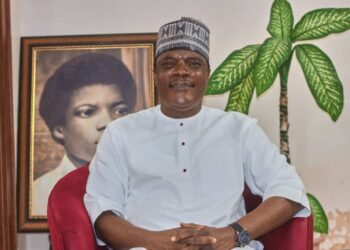Rivers State Governor, Siminalayi Fubara has signed into law the 2024 appropriation bill of N800 billion.
Speaking shortly after signing the bill at Government House, Port Harcourt yesterday, Fubara explained that with the budget providing framework for spending in 2024, his administration will undertake notable critical road projects that will connect more communities across several local governments to meet age long yearnings of Rivers people.
The governor said: “This budget shows that we have a plan for our dear State. One of the reasons why our budget is in the volume of N800bn is that we intend, not just by desiring, to ensure that one key request of our dear State is met.
“God being our helper, we will commence immediately, by next year, flaging off the actual and main Trans-Kalabari road project phase 2.
“We have also, in our budget, provided to take care of the Elele-Omoku road project; road that cuts through Ikwerre, Emohua and Ogba-Egbema-Ndoni Local Government Areas. We are also taking that project as one of our cardinal achievements of this administration. We are not going back on it.”
He assured that no efforts will be spared in implementing to the full the planned out quality projects and services itemised in the 2024 appropriation.
Fubara emphasised that the budget will be driven in a manner that will make a positive impact on the lives of all residents in Rivers State because they will see and feel development at their door steps.
The governor said: “I want to assure you that this administration has the best interest of our people. It is an administration that wants every one to have hope. We have keyed into the Renewed Hope Agenda of our dear President Bola Tinubu to continue to assure our people of hope. The best of us will be seen by everyone.
“We will continue to protect the interest of our people, do the best for everyone, not minding your position or class. Our government is a responsive and inclusive government. Our eyes and ears are open to the needs of our people. We will not disappoint you.”
He commended the legislature for their support to his administration and assured that God that has continued to make way out of the challenges will continue to embolden them.
In presenting the budget to Fubara for ascent, the leader of the Rivers State House of Assembly, Hon. Adolphus Orubienimigha, said members gave due diligence in deliberating on each item, giving careful consideration to pass the appropriation bill and urged the governor to remain resolute in discharging the duties of his office.
In his speech, Speaker of the House, Rt. Hon. Edison Ehie noted that the budget figures and items as articulated were in line with current realities and demonstrated the resolve of the governor to provide more infrastructure, strengthen sectors like education, health, and the economy to deliver optimal services including youth empowerment.
Ehie assured that the legislature will continue to stand with Governor Fubara, by providing the required support that will secure success for the administration.











